Previous Award Recipients
2022 Salk Women & Science Research Award Recipients
These awards provide crucial support to graduate students and postdoctoral researchers to pursue high-risk, high-reward research in stages too early to attract traditional funding. The awards are targeted towards supporting future scientific leaders who will also actively foster the increased participation of women and girls in science.
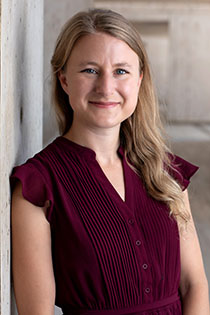
Anna Gauthier
Noel Lab
Discovery of disease tolerance mechanisms for plant and global health
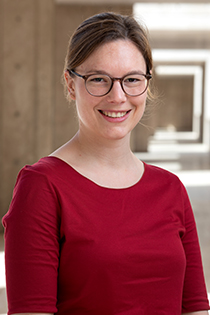
Anna-Maria Globig
Kaech Lab
How the nervous system regulates immune cells called CD8+ T cells in viral infections and cancer
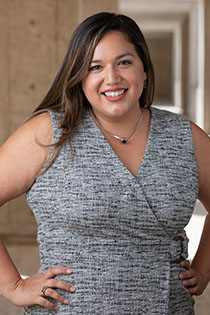
Brittany Ellis Jewell
Shaw Lab
Metabolic regulation in colon cancer, Crohn’s disease, and colitis
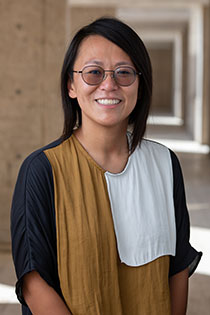
Caroline Jia
Tye Lab
How social exclusion changes the way the brain and body respond to physical pain
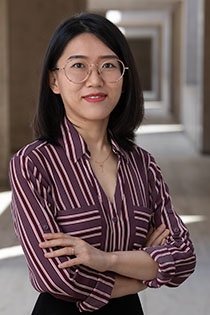
Yuening Liu
Kosuri Lab
How the organization of cells and their interactions affect the outcome of heart disease

Monika Ramos
Hollern Lab
Consequences of Lyme disease on cancer risk and behavior
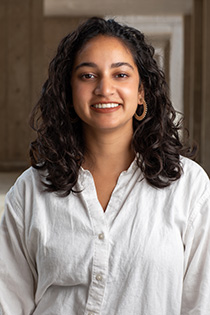
Jasmin Revanna
Gage Lab
How brain cells called microglia contribute to Alzheimer’s disease
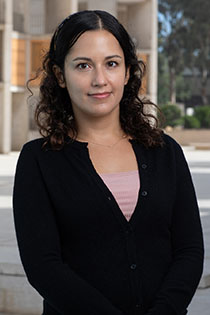
Katia Troha
Ayres Lab
Methionine protects the brain against infection
Trailblazer Award
Women & Science recognizes outstanding achievements made by women in a STEAM
(Science, Technology, Engineering, Art and Mathematics) field, honoring select individuals with the Trailblazer Award.
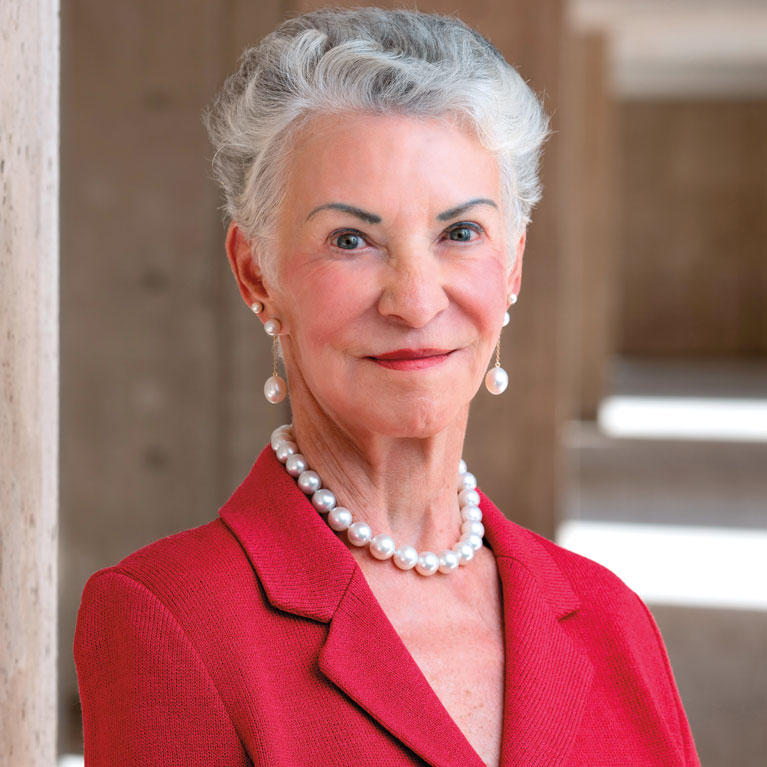
Catherine Rivier
Salk Professor Emerita
The inaugural recipient of the Trailblazer Award in 2018, Professor Emerita Catherine Rivier joined the Salk Institute in 1970. She made many key discoveries regarding the mechanisms through which the brain is alerted to stressors such as psychological threats, infections, or drugs, as well as the hormones used by the brain to respond to these challenges. She also identified a large number of hormonal functions and new endocrine pathways throughout the body. She published hundreds of papers over her career, earned numerous consecutive “Highly Cited Researcher” recognitions, and paved the way for many future discoveries.
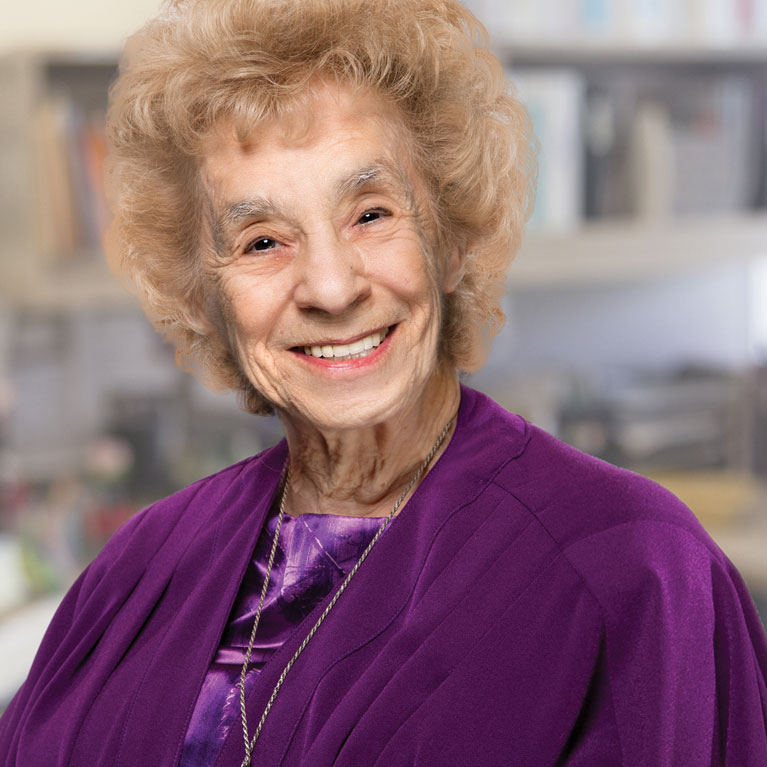
Ursula Bellugi
Salk Distinguished Professor Emerita
In 2019, the Salk Trailblazer award was renamed in honor of Salk Distinguished Professor Emerita Ursula Bellugi, who established an endowed fund to support those who have pioneered changes within the STEAM fields. She is widely regarded as the founder of the neurobiology of American Sign Language (ASL) and was the first to demonstrate that ASL is a true language. Her work led to the discovery that the same areas of the human brain that specialize in spoken language are activated by sign language. These findings provided significant insights into how the brain learns, interprets, and forgets language. She also made fundamental discoveries regarding Williams syndrome and autism. Bellugi died in 2022 at the age of 91.
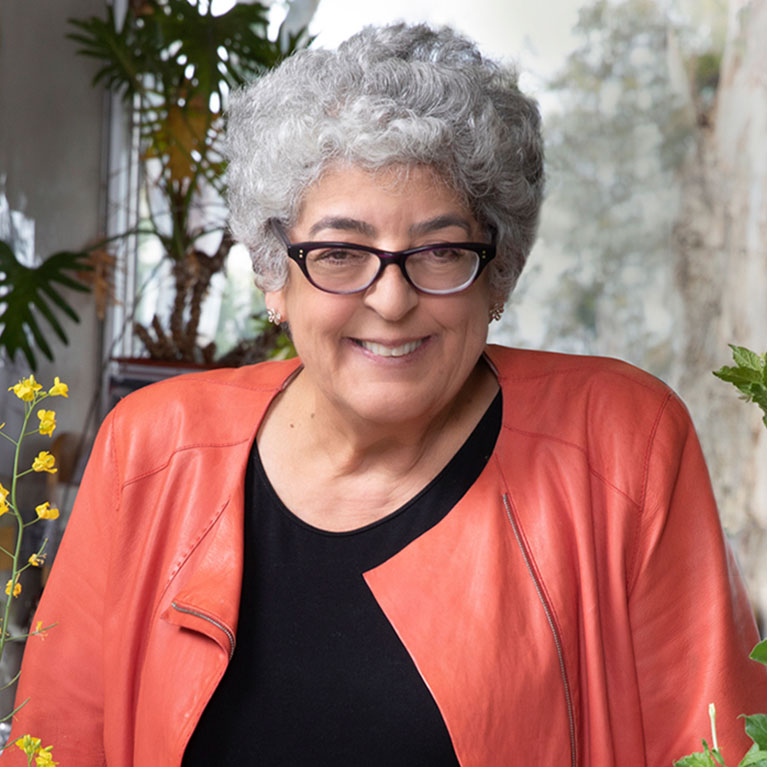
Joanne Chory
Salk Professor
Joanne Chory has spent more than 25 years studying how plants respond to their environments and has made numerous fundamental discoveries regarding how plants sense light and make growth hormones. Her efforts leading Salk’s Plant Molecular and Cellular Biology Laboratory, in addition to her roles as a Howard Hughes Medical Institute investigator and the Howard H. and Maryam R. Newman Chair in Plant Biology, have been widely acclaimed. She was awarded the 2018 Breakthrough Prize in Life Sciences and was inducted as a Fellow of the National Academy of Inventors. As co-director of the Salk’s Harnessing Plants Initiative, which optimizes plants to withstand and mitigate climate change, in 2019 she was instrumental in the Institute’s selection for $35 million in funding from The Audacious Project, a highly competitive TED program.

Rebecca Newman
Salk Former Salk Vice President of External Relations
Rebecca Newman oversaw private philanthropy, communications, and event-related activities for the Institute for more than 14 years. She was instrumental in guiding Salk’s first major fundraising campaign to support scientific research, which secured $360 million in 2015. Over her time at Salk, she increased private giving by an astounding 40 percent. Newman established the Women & Science program in 2011 to raise the visibility of women in science through historic fundraising and community engagement. In addition, events such as Explore Salk, the Salk Science & Music Series, Symphony at Salk, and numerous others saw significant advances during her tenure.
Congratulations to our 2021 Salk Women & Science Special Award Recipients

Xiaochun Cai
Jin Lab
Discover how two brain regions, the thalamus and striatum, work together to control the way animals perform actions in sequence
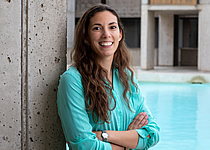
Suzanne Dufresne, PhD
Towers Lab
Investigate how cancer cells can survive and bypass the deletion of autophagy—the way cells remove and recycle their “junk”—in animal models, and how we might treat it
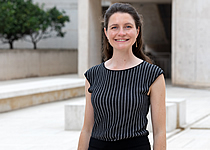
Helen McRae, PhD
Hargreaves Lab
Profile epigenomics—chemical changes to the genome—in tumor-associated immune cells called macrophages

Payel Mondal, PhD
Towers Lab
Use new light-based tools to inhibit autophagy—the process cells use to remove and recycle their “junk”—and visualize the resulting metabolic changes over time
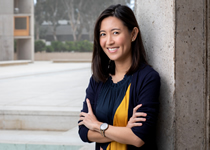
Nuttida Rungratsameetaweemana, PhD
Sejnowski Lab
Determine how neurons work together to take in sensory information and form a schema—a conceptual picture of a task or environment, which can help shape future learning
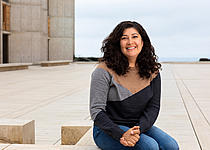
Veronica Scerra, PhD
Reynolds Lab
Develop new methods to probe changes in synapses—connections between neurons—that could play a role in neurological diseases
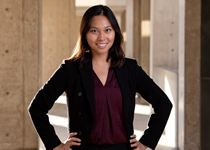
Ying Sun, PhD
Busch Lab
Identify the genes and regulatory factors that control root growth in legumes—ultimately to optimize roots that capture excess carbon dioxide from the atmosphere
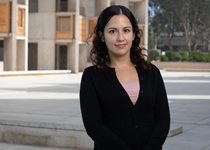
Katia Troha, PhD
Ayres Lab
Determine how amino acid supplementation promotes renal growth to increase survival of infection
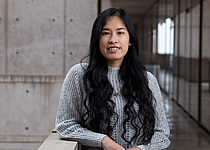
Wen Mai Wong, PhD
Chalasani Lab
Characterize ultrasound-sensitive proteins from single-celled organisms for use in sonogenetics—a new method for activating cells with sound waves
Congratulations to our 2020 Salk Women & Science Special Award Recipients
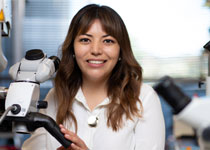
Bianca Barriga
Pfaff Lab
Investigating Effects of Exercise Training on Spinal Neural Networks
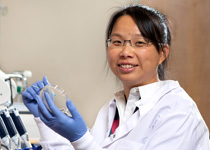
Hsiuyi Chen, PhD
McVicker Lab
Generating HIV-resistant human CD4+ T cells by introducing of thousands of chimpanzee alleles with massively-parallel genome editing
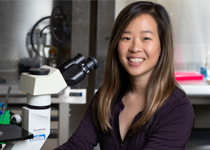
Sej Chung, PhD
Engle Lab
Defining the role of CA19-9 in the pancreatic microbiome
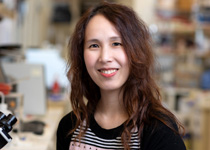
Sharon (Hsiang-Hsuan) Huang, MD
Jin Lab
Dissect the role of sensorimotor feedback in action sequencing
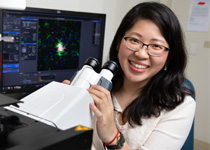
Youtong Huang
Lemke Lab
Microglial TAM receptors as modulators of pathology in Amyotrophic Lateral Sclerosis
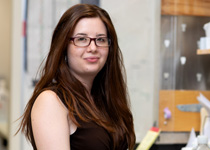
Andreea Manole, PhD
Gage Lab
Neuroinflammation associated with genetic defects in phospholipase A(2) and glucocerebrosidase

Heather McGee, MD, PhD
Kaech Lab
Investigating the role of radiation-induced innate immune cell activation in unique tumor microenvironments
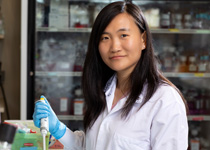
Jia Ning, PhD
Hunter Lab
Establishing cell and mouse models to study RNA polymerase III-related neurodegenerative diseases
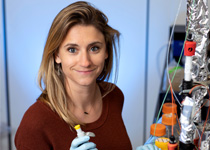
Annelise Snyder, PhD
Kaech Lab
Determining the role of microglial metabolic reprogramming in linking infection to Alzheimer’s disease
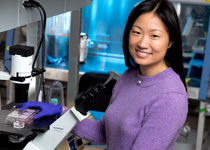
Yuan Xue, PhD
Belmonte Lab
Creating biocompatible electric organoids for the mammalian system
Congratulations to our 2019 Salk Women & Science Special Award Recipients
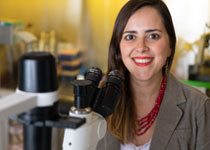
Juliana Capitanio, PhD
Martin Hetzer Lab
Deciphering the role of long-lived histones in the genomic landscape
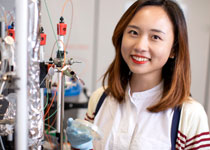
Kay Chung, PhD
Susan Kaech Lab
Next-generation designer T cells for optimal and persistent anti-tumor immunity
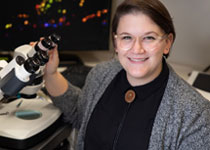
Jessica Haley
Sreekanth Chalasani Lab
eSCAPEing the immobilized preparation: Whole-brain imaging in freely-moving animals
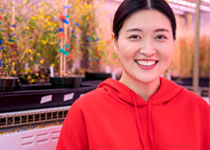
Wenrong He, PhD
Wolfgang Busch Lab
Identification of novel regulators for root system architecture by combining high-throughput chemical genetics and GWAS
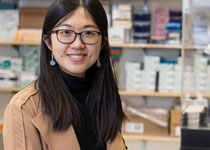
Shijia Liu
Sung Han Lab
Dissecting neural circuits for opioid-induced respiratory depression
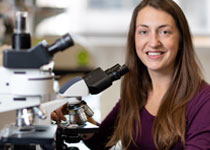
Nikki Lytle
Geoffrey Wahl Lab
Tracking cellular plasticity during tumorigenesis by intravital imaging
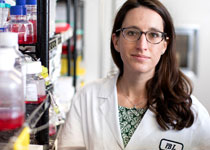
Amanda Phillips Yzaguirre, PhD
Juan Carlos Izpisua Belmonte Lab
Elucidating a novel mechanism of angiogenesis
Congratulations to our 2018 Salk Women & Science Special Award Recipients
View Awardee Gratitude Messages
Thanks to you, we met our fundraising goal of $300,000.
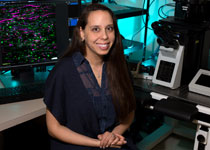
Lydia Daboussi, PhD
Samuel Pfaff Lab
Genetic and functional characterization of a novel factor involved in nerve regeneration
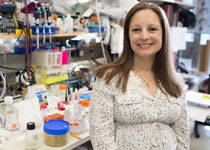
Kathleen DelGiorno, PhD
Geoffrey Wahl Lab
Epithelial heterogeneity and the pathogenesis of pancreatitis and pancreatic cancer
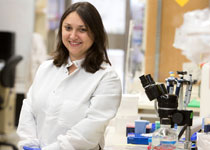
Isabella Farhy-Tselnicker, PhD
Nicola Allen Lab
Identification of novel protein complexes at developing synapses
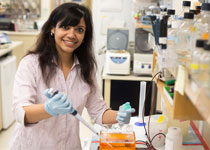
Shefali Krishna, PhD
Martin Hetzer Lab
Long-lived proteins in the mitochondria and their role in aging
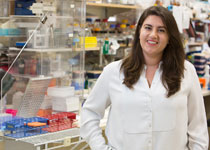
Emily Manoogian, PhD
Satchidananda Panda Lab
Artificial intelligence-driven optimum personalized lifestyle to sustain circadian rhythms, prevent disease, and accelerate recovery
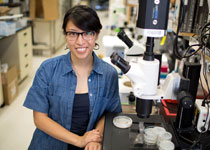
Kathleen Quach, PhD
Sreekanth Chalasani Lab
Pristionchus pacificus as a nematode model of aggression
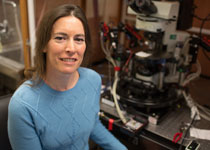
Shani Stern, PhD
Rusty Gage Lab
Novel humanized organoids based platform for modeling bipolar disorder
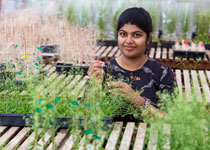
Neeraja Vegesna, PhD
Julie Law Lab
Characterization of a DNA damage specific chromatin reader
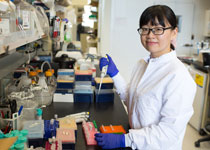
Cuiqing Zhong, PhD
Juan Carlos Izpisua Belmonte Lab
Using interspecies chimeras to derive glucose-competent human pancreatic cells
Congratulations to our 2017 Salk Women & Science Special Award Recipients
We are thrilled to announce that we have reached our 2017 fundraising goal of $175,000. A special thank you to Lynne and Mason Rosenthal / Leo S. Guthman Fund for their significant lead gift and matching challenge!
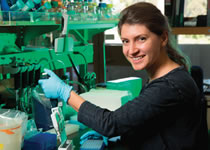
Ceyda Coruh, PhD
Julie Law Lab
Identification of proteins associated with double-strand breaks in different chromatin contexts
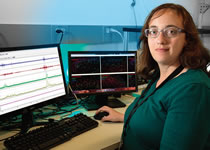
Graziana Gatto, PhD
Martyn Goulding Lab
A novel in vivo approach to titrate sensory input during basic and complex motor behavior
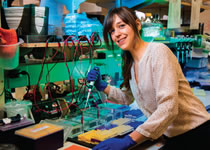
Claire Geddes
Xin Jin Lab
How corticostriatal circuits control action sequences
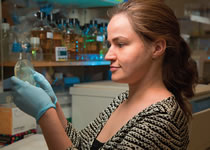
Silvana Konermann, PhD
Patrick Hsu Lab
Genome-scale genetic perturbation of the APOE2 and APOE4 human interactomes
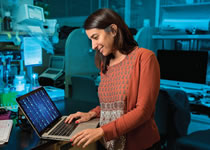
Sara Linker, PhD
Rusty Gage Lab
Examining if activity-induced retrotransposition modulates neural reactivity
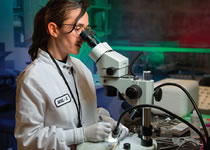
Hermina Nedelescu, PhD
Eiman Azim Lab
Organization of internal copy neural circuits for skilled forelimb movement
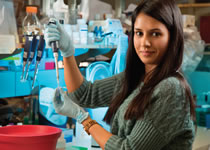
Annie Rathore
Alan Saghatelian Lab
Microprotein-associated proteins via promimity labeling
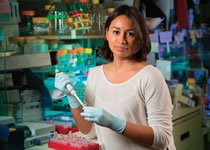
Cynthia Reyes, PhD
Vickie Lundblad Lab
A new model for telomere length regulation
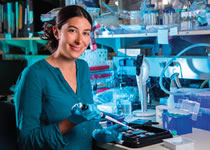
Maya Ridinger, PhD
Geoffrey Wahl Lab
Deciphering p53 functions in the stroma of pancreatic cancer
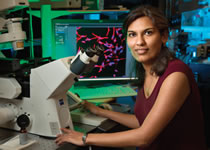
Swati Tyagi, PhD
Martin Hetzer Lab
Dynamics of genome architecture at nuclear pore complexes during cell development
Congratulations to our 2016 Salk Women & Science Special Award Recipients
We did it! We exceeded our 2016 fundraising goal of $150,000 by $15,000! Your gift this year provided funding for five early career scientists.
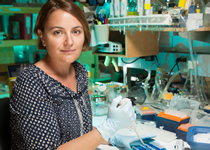
Nausica Arnoult, PhD
Jan Karlseder Lab
Characterizing the first regulator
of DNA repair pathway choice
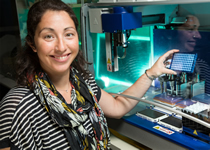
Amandine Chaix, PhD
Satchidananda Panda Lab
Gating of hepatic transcriptional response
to food intake by the circadian clock
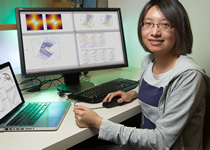
Wei-Mien (Mendy) Hsu
Tatyana Sharpee Lab
The impact of sensory uncertainty on maximally informative adaptive dynamics in neural populations
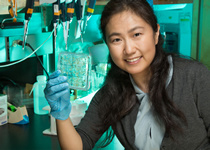
Liang Song, PhD
Joseph Ecker Lab
Phosphorylation-mediated transcriptional feedback control of ABA receptors in plants
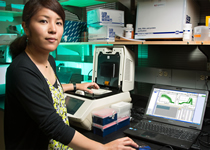
Mako Yamamoto, PhD
Juan Carlos Izpisua Belmonte Lab
In vivo genome editing via CRISPR-Cas9 mediated homology-independent targeted integration
